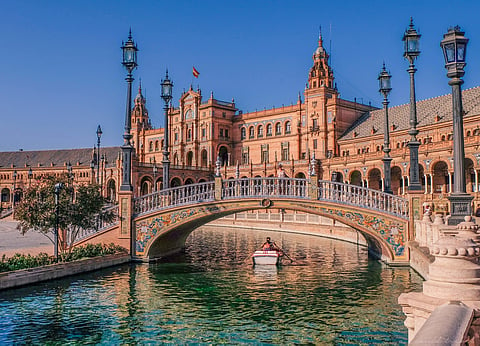Work remotely from Spain? How UAE residents qualify for Digital Nomad Visa
Spain's Digital Nomad Visa lets UAE-based remote workers live in Spain for up to 5 years

Dubai: For many UAE residents, the idea of living in Spain—where café culture meets beachside workdays—is more than a vacation fantasy. Thanks to Spain’s Digital Nomad Visa (DNV), remote workers and freelancers can now legally live in the country for up to five years while continuing to work for clients or companies based outside Spain.
Launched in 2023 as part of Spain’s Startup Act, this visa is designed to attract global digital talent by offering an appealing lifestyle, favourable tax perks, and a clear legal pathway to residency.
So, if you’re currently living in the UAE and working remotely—whether as an employee or a self-employed professional—this could be your gateway to life in Europe.
Who is it for?
The Digital Nomad Visa is open to non-European Union and non-European Economic Area citizens—making UAE residents eligible by default. Whether you're working from home in Dubai for a US-based company or freelancing for clients across the globe, the visa allows you to relocate to Spain while continuing your remote work.
The only major condition? Your work must primarily be for companies outside of Spain. However, if you’re self-employed, you’re allowed to work with Spanish clients too—just as long as it doesn’t account for more than 20% of your overall income.
Key eligibility criteria
To qualify, applicants must show that they’re financially stable, earning a minimum of €2,760 per month (roughly Dh11,000). If you're planning to bring family along, the income requirement increases—by 75% for a spouse and 25% for each additional dependent.
You’ll also need to demonstrate either a university degree or at least three years of relevant work experience. Additionally, you must have a clean criminal record from all countries you've lived in over the past five years, and proof of private health insurance from a Spanish provider that covers you and any accompanying family members.
Can you bring your family?
Yes—and that’s one of the biggest perks. The visa allows you to include your spouse or unmarried partner, children, and even dependent parents in your application. However, you’ll need to show you earn enough to support them, and submit relevant documents such as marriage and birth certificates, all translated into Spanish and legally authenticated.
How to apply from UAE
UAE residents can start their application process at the Spanish Embassy in Abu Dhabi or via BLS Spain Visa Centres in the UAE. Alternatively, if you're already in Spain as a tourist, you can apply for a residence permit directly before your 90-day stay runs out.
You’ll need to gather a number of documents, including a valid UAE residency visa, passport, employment contracts or client letters, proof of income (such as bank statements and payslips), and criminal background checks. All foreign documents must be translated into Spanish by a sworn translator, and some may require legalisation or apostille stamps.
You’ll also need to obtain a Spanish NIE (foreigner ID number)—a crucial step before applying for the visa itself.
Once all your documents are ready, send an email to the Spanish Embassy with a copy of your UAE residence visa to book your appointment:
emb.abudhabi.vis@maec.es
What does it cost?
The basic visa application fee is around €80, with an additional €20 fee for the NIE number. You should also factor in costs for document translation, apostilles, and other admin fees, which can add up to a few hundred euros, depending on your case. While not overly expensive, the process does require thorough preparation.
Visa duration, path to residency
Initially, the visa is valid for 12 months, but it can be renewed for up to five years. If you reside in Spain for more than 183 days a year, you may even qualify for permanent residency or citizenship after five years.
During your stay, you’ll have visa-free travel across the EU’s Schengen area, making weekend trips to France or Italy just a short flight away.
What about taxes?
If you're in Spain long enough to become a tax resident, there’s more good news. Under Spain’s Beckham Law, many digital nomads qualify for a special tax regime where only Spanish-sourced income is taxed at a flat rate of 24%—and only up to €600,000 a year. Spain also has double taxation agreements with more than 90 countries, including the UAE, India, UK, and US, meaning you won’t pay tax twice on the same income.
Why Spain?
Spain’s appeal goes far beyond good weather. With an excellent healthcare system, high-speed internet, strong public transport, and relatively affordable living costs compared to other Western European nations, it’s a digital nomad haven.
Add to that the laid-back lifestyle, family-friendly culture, and vibrant cities like Madrid, Valencia, and Barcelona—and you’ve got a compelling case for relocation.
Final word: Is it worth it?
For UAE-based remote workers dreaming of a European lifestyle without giving up their current jobs, Spain’s Digital Nomad Visa is a game-changer. It offers the legal flexibility to live and work in one of Europe’s most beautiful and culturally rich countries—without needing to change your employer, business model, or lifestyle.
If you're financially stable, meet the work criteria, and are ready for a little paperwork, your next office might just come with a view of the Mediterranean.



